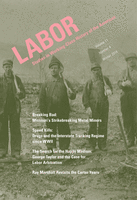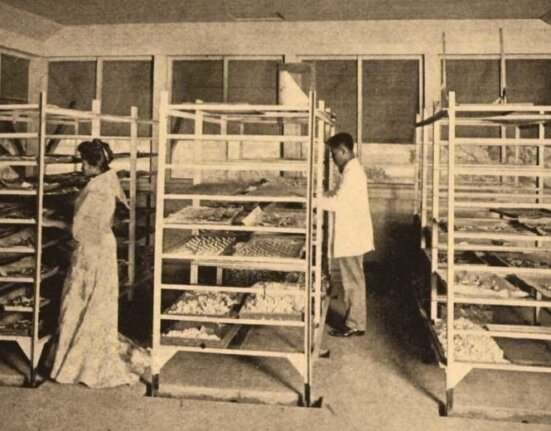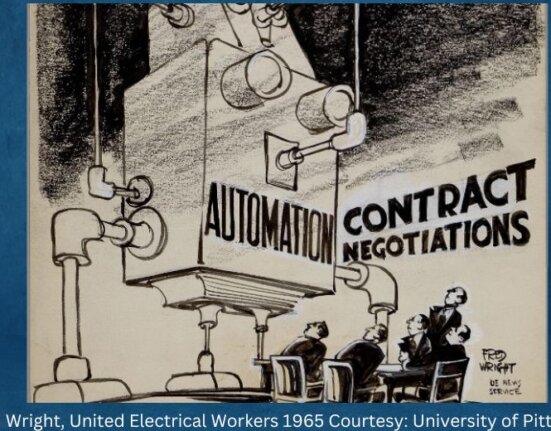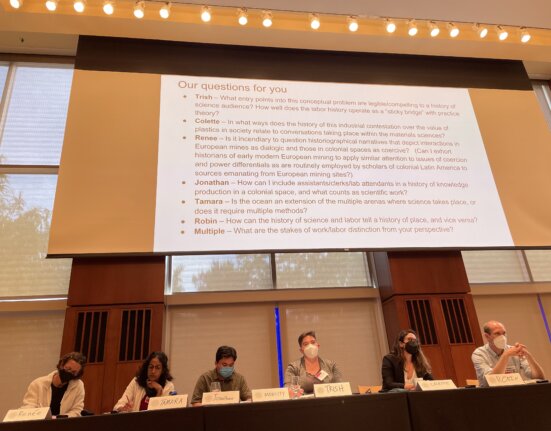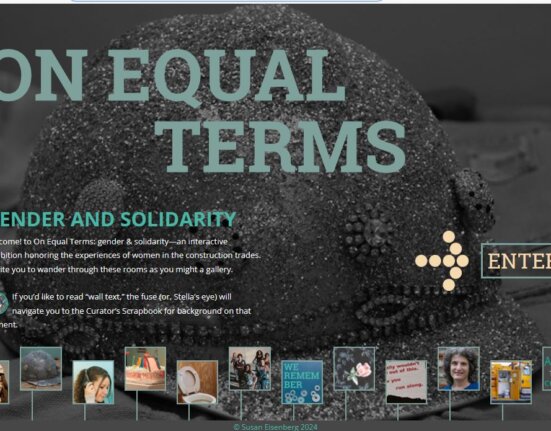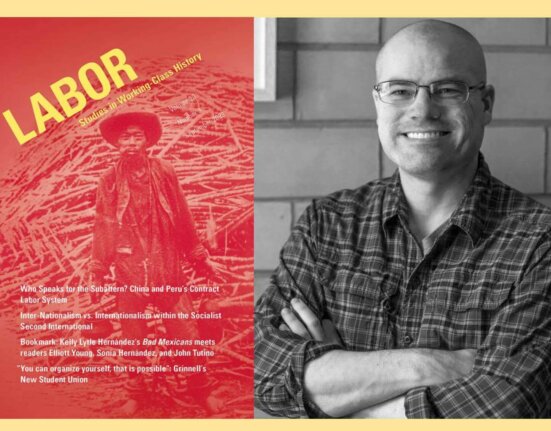In This Issue
Articles
- Jarod Roll, “Sympathy for the Devil: The Notorious Career of Missouri’s Strikebreaking Metal Miners, 1896–1910”
Between 1896 and 1910, miners from the zinc and lead district around Joplin, Missouri, worked as strikebreakers in almost every strike waged by the Western Federation of Miners (WFM). In most cases they helped defeat the union. Rather than dismiss these strikebreakers as the pawns of mine owners, Jarod Roll argues that their actions reflected careful appraisal by workers who understood the benefits and risks of crossing picket lines. Over time, repeated conflict between nonunion and union miners shaped the ideas of both groups. The effectiveness of the strikebreakers spurred the WFM to intensify its commitment to industrial unionism. Missouri miners, in turn, developed a belligerent anti-unionism that undermined every WFM effort to organize the Joplin district. By using the methods of working-class history to study workers who opposed unions, Roll concludes, labor historians gain a greater understanding of all workers, union and nonunion alike.
- Ronald W. Schatz, “‘Industrial Peace through Arbitration’: George Taylor and the Genius of the War Labor Board
Thirty years ago Lichtenstein, Stone, Lynd, et al. accused the National War Labor Board (NWLB) of pursuing policies that crushed worker militancy during World War II, with dreadful long-term consequences. Critiquing that view in this article, Ronald Schatz offers a new interpretation. First, the board contributed to the production of goods essential to the war by mediating between unions and corporations, which in turn helped forestall a “labor draft.” Second, it trained a corps of capable arbitrators acceptable to both unions and management who went on to become the principal intermediaries in American industries for decades. Third, the board required corporations and unions to accept binding-arbitration clauses that over time tended to be more beneficial to workers and unions than to stockholders and management. Finally, the system constructed in 1942–45 served as a model when government and service workers organized in the 1960s. The article is based on close examination of meetings of the NWLB and the regional war labor boards as well as the background and perspective of George Taylor.
- Kevin Riley, “Driving on Speed: Long-Haul Truck Drivers and Amphetamines in the Postwar Period”
In this essay, Kevin Riley examines the history of amphetamine use by long-haul truck drivers in the United States in the postwar era, providing an extended analysis of the complex ways stimulant use was embedded in industry practice. Riley demonstrates the black market in amphetamines on the nation’s highways was inextricably tied to the business of unregulated trucking—an overall absence of regulatory control on the “competitive fringe” of the industry meant exposure to intense competitive conditions that encouraged excessive drive times and subsequent reliance on stimulants. Riley also considers the predominant responses to the amphetamine problem by trucking industry representatives, government officials, organized labor, and the mass media, all of which helped to obscure the work-related roots of the amphetamine problem. The essay contributes to an understanding of how the corporeality of work is both molded by larger economic and political forces and enshrouded in cultural meaning.
- Joseph E. Hower and Joseph A. McCartin, “Marshall’s Principle: A Former Labor Secretary Looks Back (and Ahead)”
This article features an extended interview with Ray Marshall, professor emeritus and Audre and Bernard Rapoport Centennial Chair in Economics and Public Affairs at the Lyndon B. Johnson School of Public Affairs, University of Texas at Austin, and former secretary of labor to President Jimmy Carter (1977–81). An influential figure in the field of labor economics and the economics of discrimination, Marshall joined the Carter administration at a pivotal moment in postwar American history. In this interview, he reflects on his time as secretary of labor, his broader career in academia and politics, and the state and future of working America, addressing topics that include contemporary politics, economic and fiscal policy, labor law, education and immigration reform, and the role of organized labor in American society.
The Common Verse
- Brian Fanelli, “Adjunct Blues“
LAWCHA Watch
- Rosemary Feurer, “Teacher Initiative and Labor History Ad Hoc Committee”


